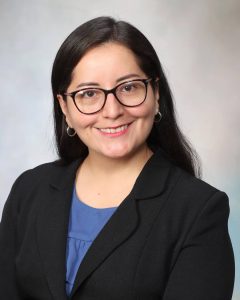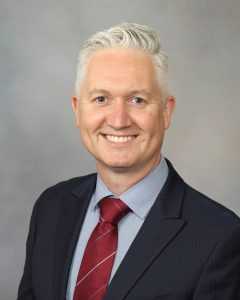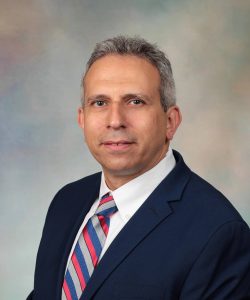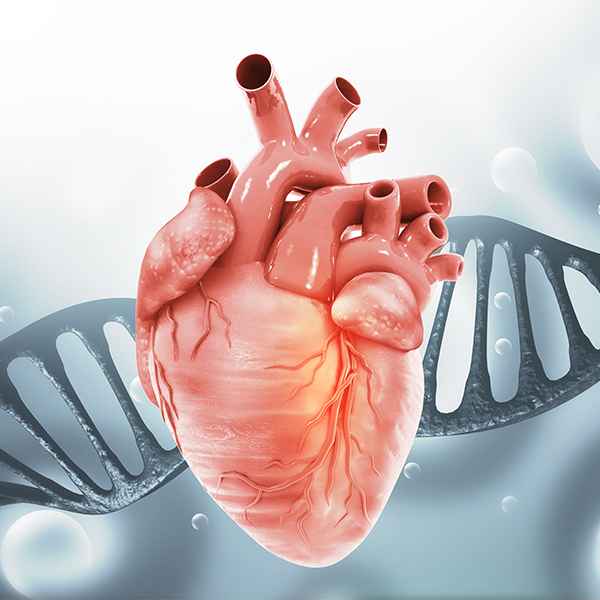-
Congenital heart disease through life: Mayo Clinic experts explain changes to expect

ROCHESTER, Minn. — Sixty years ago, treatment options were few for a child born with a structural heart defect. Innovations in therapies have since transformed congenital heart disease into a condition that often can be managed throughout adulthood. In this expert alert, Mayo Clinic cardiologists explain how the disease may change over a lifetime.
There are nearly 2 million U.S. adults with congenital heart disease who need ongoing, personalized care to address issues such as heart failure. Less than half of these adults are being seen by a specialized team that understands their needs. Many do not receive the follow-up care they need.
Many people with adult congenital heart disease (ACHD) believe if they had surgery during childhood, they no longer need to be concerned about their heart condition. This isn’t true, Mayo Clinic experts say: Patients need lifelong monitoring, support, and potentially, future procedures.
As a child with congenital heart disease approaches adolescence, having conversations with family and ACHD care teams about transitioning from pediatrics to adult care will help set the foundation for healthy adult life.

"When these young patients move on to college and away from home, it is important that they are familiar with their diagnosis and surgical history, in case they need emergency care," says Katia Bravo, M.D., a cardiologist at Mayo Clinic in Jacksonville, Florida who specializes in adult congenital heart disease and cardio-obstetrics.
An excellent resource for finding help across the U.S. is the Adult Congenital Heart Association directory of specialized clinics, including Mayo Clinic.
"College is a big step and one that comes with additional stress and changes in routine. It is important for patients with congenital heart disease to talk openly with their care team about building good habits such as regular exercise, and resisting peer pressure toward harmful habits like alcohol, drugs, nicotine and vaping," Dr. Bravo says. "And because pregnancy places added stress on the heart, young women should discuss family planning with their congenital heart team."
Another challenge adults with congenital heart disease may face is heart failure, in which the heart cannot keep up with the body's needs, causing fatigue, breathlessness and fluid retention.

Further complicating matters, people living with adult congenital heart disease have a high rate of mental health concerns. Up to 60% are lost in the health care system, leading to delays in treatment and poor health outcomes, says Luke Burchill, M.D., a cardiologist at Mayo Clinic in Rochester and one of the few specialists in the world qualified in adult congenital heart disease and heart failure.
Dr. Burchill’s research has found that hospitalizations for young adults with heart failure due to congenital heart disease are on the rise across the U.S. The treatment that people receive varies dramatically depending on where patients are hospitalized. Those seen in expert high-volume centers are more likely to receive the care and treatment needed.
The problem, Dr. Burchill explains, is that "heart failure programs have not been built for those with adult congenital patients, and adult congenital heart programs have not been built for those with heart failure."
Dr. Burchill, president of the International Society for Adult Congenital Heart Disease, is engaging with the ACHD community and a world-class team of experts to build the world's first heart failure pathway program designed by and for those living with adult congenital heart disease. He envisions a pathway that will serve as a beacon for those needing specialized heart failure care, so that it is delivered at the right place and the right time, taking into account each person's cardiac, mental, social, emotional, cultural and spiritual needs.
Staying connected to an adult congenital heart disease care team is also an important way for patients to advocate for their quality of life. The frequency of follow-up may change depending on their state of health. Most patients at Mayo Clinic with complex congenital heart disease have had multiple surgeries or interventions. Each patient has individual needs, and the decision to move ahead with an intervention is not taken lightly.

"Symptoms are important ways the body alerts you to an abnormality, and these symptoms should be assessed quickly. However, I would recommend not relying on symptoms, as some significant abnormalities may not cause obvious cardiac signs or symptoms early on," says David Majdalany, M.D., a cardiologist at Mayo Clinic in Phoenix specializing in adult congenital heart disease.
An undetected problem can cause serious damage, which is why follow-up visits are important. Dr. Majdalany gives the example of patients with repaired Tetralogy of Fallot, who may have severe pulmonary valve leakiness. These patients may feel well and not show any symptoms until the valve leakiness causes heart rhythm disturbances, or the right ventricle becomes enlarged and doesn’t work properly. This damage can be irreversible.
Dr. Majdalany adds that where a patient receives care is important, as pulmonary valve leakiness cannot be easily picked up on a physical exam or basic echocardiography performed in centers without congenital expertise.
###
About Mayo Clinic
Mayo Clinic is a nonprofit organization committed to innovation in clinical practice, education and research, and providing compassion, expertise and answers to everyone who needs healing. Visit the Mayo Clinic News Network for additional Mayo Clinic news.
Media contact:
- Terri Malloy, Mayo Clinic Communications, newsbureau@mayo.edu
Related Articles







